Smart motorway death widow says government 'stalling tactics' put lives at risk
- Published
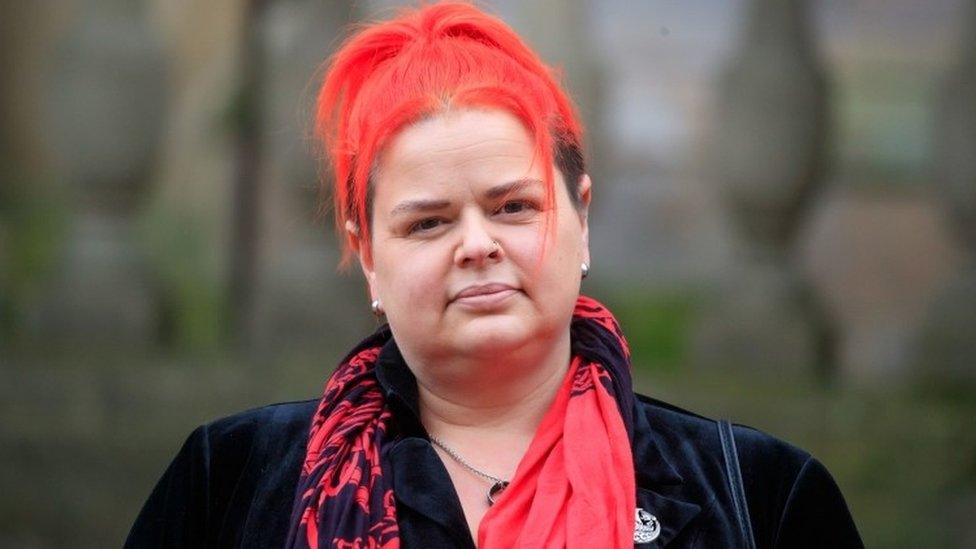
Claire Mercer has campaigned against the use of smart motorways since her husband's death in 2019
A widow whose husband was killed on a smart motorway has criticised the government over delays in responding to calls to reinstate hard shoulders.
Claire Mercer's husband Jason, 44, and Alexandru Murgeanu, 22, died on the M1 near Sheffield in 2019.
Mrs Mercer accused the government of using "stalling tactics" after waiting weeks for a response to her concerns.
The government said it had acknowledged the concerns within a week but needed more time to consider issues raised.
Mr Mercer, from Rotherham, and Mr Murgeanu had stopped on a section of the M1 without a hard shoulder near Meadowhall in June 2019.
The pair had pulled over to exchange details after a minor collision and were killed instantly when a lorry ploughed into them.
The lorry driver, Prezemyslaw Szuba, was jailed for 10 months.
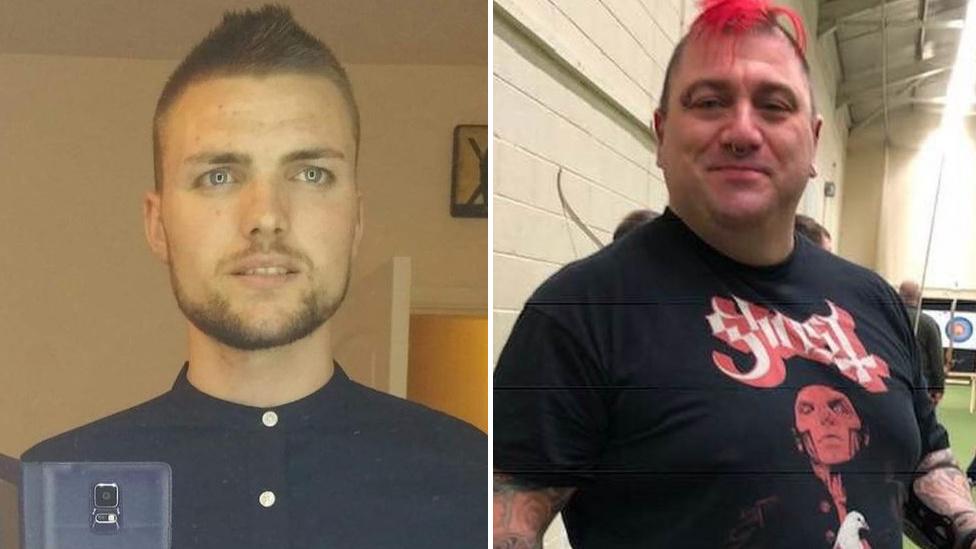
Alexandru Murgeanu (l) and Jason Mercer were killed in the crash on the M1 in South Yorkshire
At an inquest in 2021, coroner David Urpeth said the lack of a hard shoulder contributed to their deaths and that smart motorways "present an ongoing risk of future deaths".
A Department for Transport (DfT) spokesperson said the government had already cancelled plans for all new smart motorway schemes, recognising public concerns.
They added: "This was a tragic incident, and our thoughts continue to be with Jason's family for their loss.
"Working with National Highways, we are investing £900m in further safety improvements on existing smart motorways."
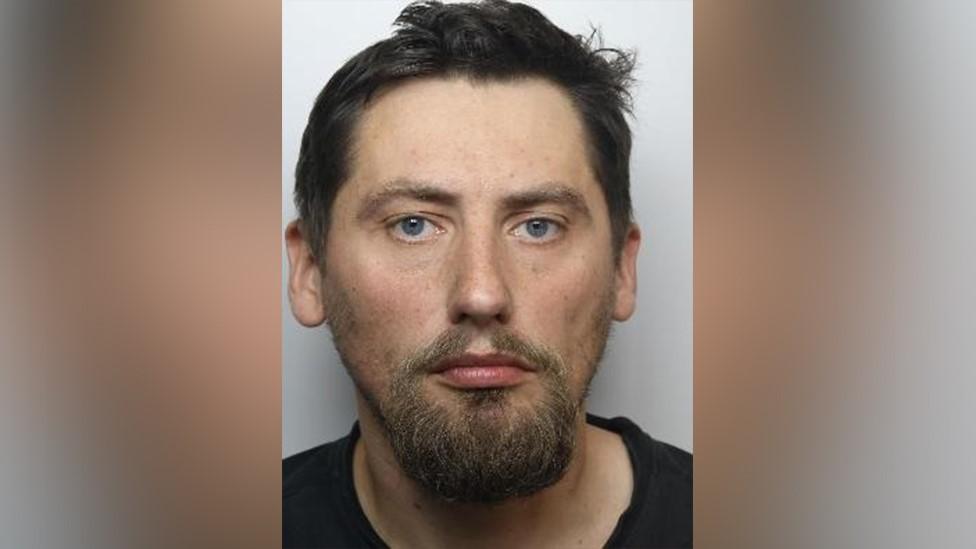
Prezemyslaw Szuba was jailed over the deaths
In October last year, lawyers representing Mr Mercer's family wrote to authorities, outlining why hard shoulders should be reinstated on all-lane running (ALR) smart motorways, where the emergency lanes had been converted into live running lanes.
Mrs Mercer said the government took more than eight weeks to acknowledge the letter, and then said it would be able to provide a final response by the end of April.
The DfT said it had replied to the firm acknowledging the letter within a week, and had provided a more substantive response within four weeks explaining why it needed further time to give a full answer.
Mrs Mercer called the delay "disgusting", adding: "I'm not going to stand for these stalling tactics which show a lack of common decency and continue to put thousands of lives at risk.
"We've spent the past four years providing evidence of how unsafe all-lane running smart motorways are.
"They have been aware of the safety concerns throughout this time so their continued delays in taking action will result in more peoples' lives being put at risk."
In April last year, Prime Minister Rishi Sunak announced the cancellation of planned projects to build ALR smart motorways.
He said this was due to cost pressures and a lack of confidence among some road users but refused to reinstate the hard shoulder on existing smart motorways.
Helen Smith, Irwin Mitchell's specialist smart motorways lawyer representing Mrs Mercer, said too many families were being torn apart because of collisions and deaths on smart motorways.
She said: "Coroners, the Transport Select Committee, an independent road safety expert and even the prime minister have all also expressed real concerns about the safety of ALRs.
"Despite this, transport bosses and the government continue to drag their heels on taking decisive action to reinstate the hard shoulder and to prioritise the safety of road users."

Follow BBC Yorkshire on Facebook, external, X (formerly Twitter), external and Instagram, external. Send your story ideas to yorkslincs.news@bbc.co.uk, external.
- Published26 January 2022
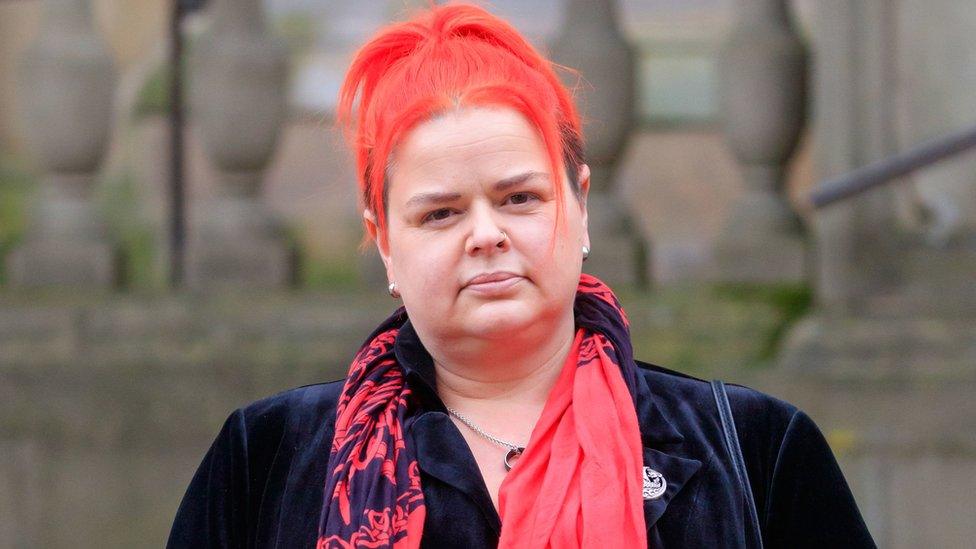
- Published2 March 2021
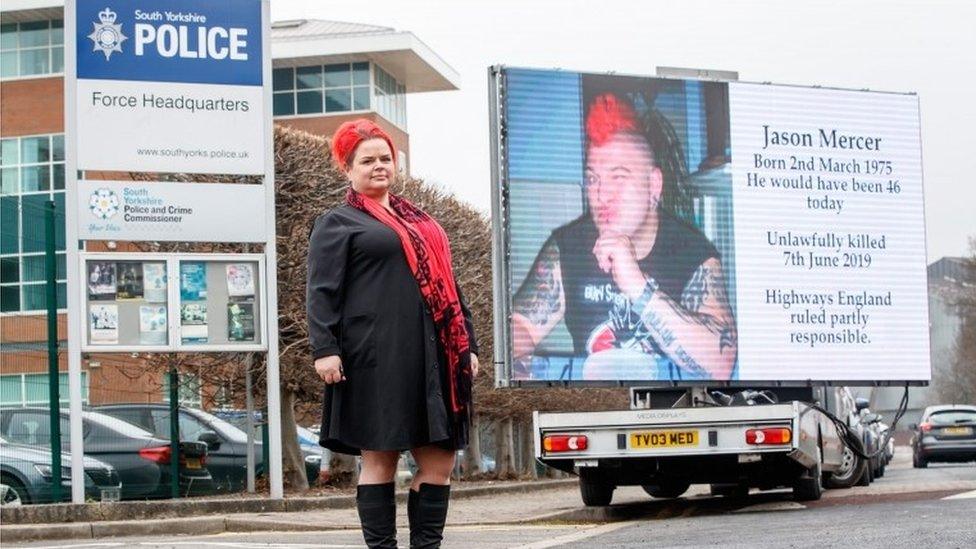
- Published19 January 2021

- Published18 January 2021
